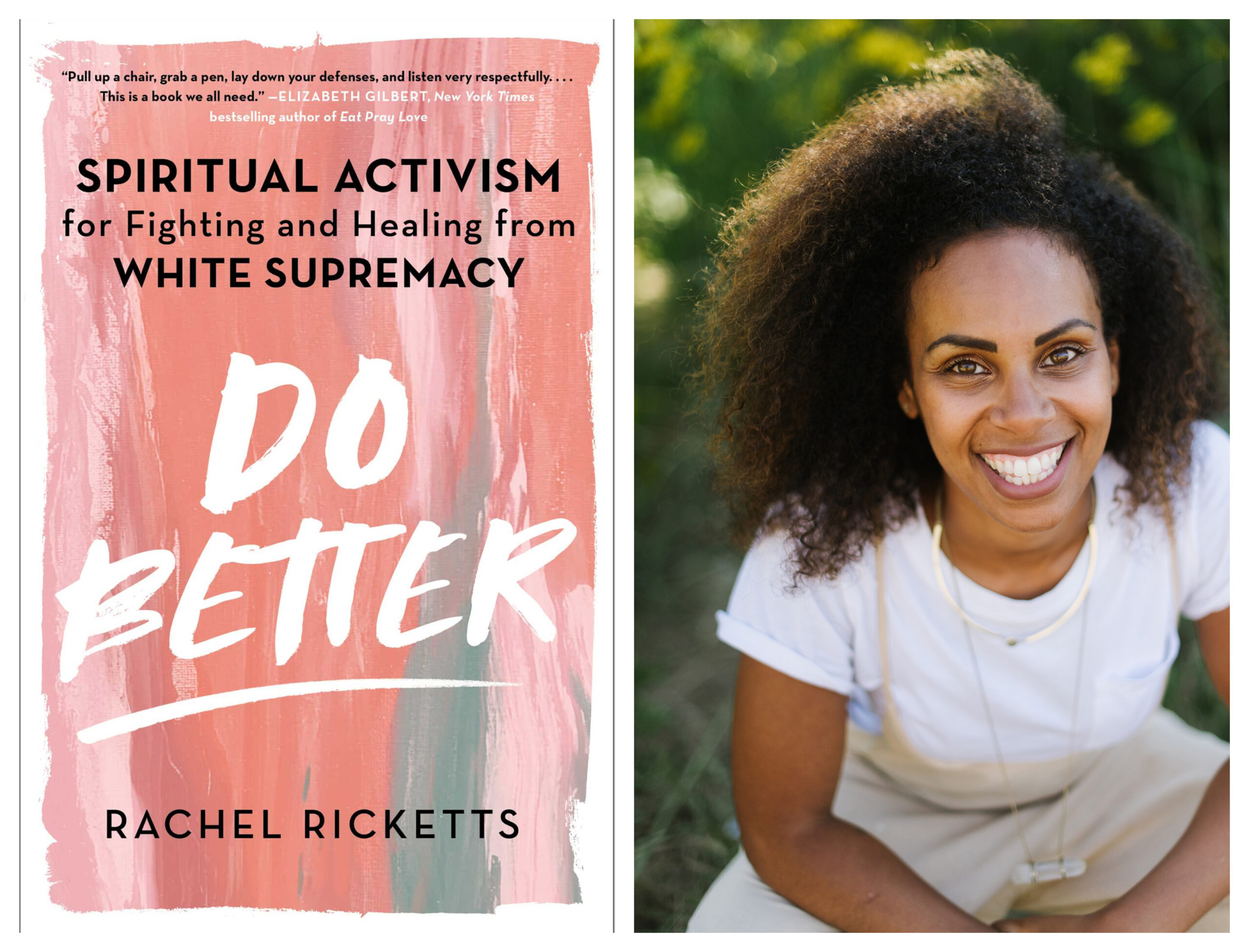Do Better Challenges You to Dive Into The Heavy Shadow Work of Dismantling White Supremacy

As far as social justice books go, Do Better: Spiritual Activism for Fighting and Healing From White Supremacy is a powerful one. Rachel Ricketts wastes no time in outlining the intensity of the work needed to enact true anti-racist ideology and societal systems, and—even more so—she beautifully marries the spiritual with the environmental by confronting the unconscious biases that ultimately birth the ugly bigotry of white supremacy.
The title of the introduction to Do Better is “My Love Includes Anger,” and in the followup 1st chapter, Ricketts quotes Reverend Angel Kyodo Williams Sensei’s adage:
“Love and Justice are not two. Without inner change, there can be no outer change. Without collective change, no change matters.”
And therein lies the “Spiritual Activism” of the entire book and—to a larger extent—the entire ethos of anti-racism work. It is no secret (especially after the racial events of George Floyd and June’s Black Lives Matter protests) that confronting racism is a difficult process. It is a slippery slope that provokes defensiveness, anger, and—in the worst cases—vitriol towards those seeking to dismantle it. But it is through the reactions that anti-racism creates that one can find one of the solutions to unravel it: inner work.
And through this book, Rachel Ricketts weaves a beautifully powerful workbook for inner healing, and inner work; through the lens of this perspective that the love she is giving you is angry, and stems from an abject refusal to receive any more trauma and injustice at the hands of white supremacy. And unlearning white supremacy (for it has been so deeply ingrained in our systems and our collective psyche) is tough work, meant to be messy, difficult, and full of uncomfortable truths and “shadows” that must be confronted in order to begin true growth and change.
But do not expect to be coddled and guided gently throughout this book, because that is not what authentic anti-racist work looks like. It relies heavily on a humility to learn the experiences of different perspectives—and therefore unlearn deeply held-beliefs, biases, and oversights that have been normalized as truth, rather than bigotry. And it requires an independence in educating oneself without the labor of others, nor a sense of entitlement.
As a Black woman, this book felt like a breath of fresh air in the way it discussed and emphasized what social justice and true change looks like and requires. And though it is not a magic end all be all solution to end white supremacy forever, it does a pretty damn good job in helping people find a great place to start the necessary work.
(featured image: Atria Books)
Want more stories like this? Become a subscriber and support the site!
—The Mary Sue has a strict comment policy that forbids, but is not limited to, personal insults toward anyone, hate speech, and trolling.—
Have a tip we should know? tips@themarysue.com